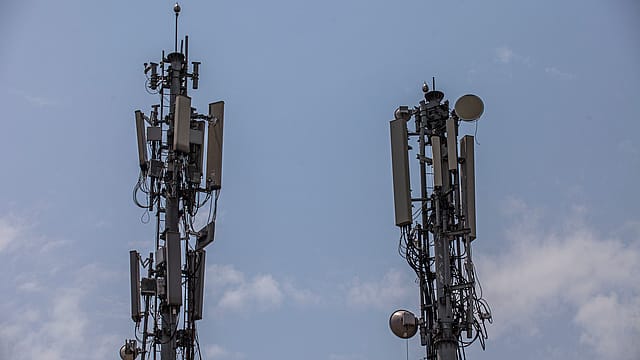Draft telecom bill: Key highlights from OTT to spectrum
ADVERTISEMENT

The Department of Telecommunications (DoT) has released the draft Indian Telecommunications Bill, 2022, under which it has widened the definition of "telecommunication services" to include over-the-top (OTT) services and internet-based communication services under the ambit of the proposed law.
The new telecom bill has also proposed a provision to waive off any fee, interest and penalties of telecom service providers. The telecom department has proposed a provision for refund of fees in case a telecom provider surrenders its licence.
The draft bill says that in case of insolvency, the spectrum assigned an entity shall revert to government control. "In the event the licensee, or assignee that has become subject to insolvency proceeding, fails to comply with the conditions stated in sub-section (2), then the spectrum, if any, assigned to such entity shall revert to the control of the central government," it says.
Every telecom user wishes to know who is calling, says an explanatory note to the draft bill. To prevent cyber-frauds done using telecom services, provisions related to identity have been included in the bill at relevant places.
The draft bill enables a legal framework for preventing harassment of users from unsolicited calls and messages. "Users also need protection from calls that they want to avoid," the note says.
The bill also provides that the identity of the person sending a message shall be available to a user. This provision is important to prevent cyber frauds.
This comes at a time when India has the world's second largest telecommunication ecosystem with 117 crore subscribers. The telecommunication sector employs more than 4 million people and contributes about 8% of the country's GDP.
The existing regulatory framework for the telecommunication sector is based on the Indian Telegraph Act, 1885. The nature of telecommunication, its usage and technologies have undergone a massive change since the era of telegraph.
"We now live in the era of new technologies such as 4G and 5G, Internet of Things, Industry 4.0 etc... These technologies are creating newer opportunities for India's socio-economic growth. Therefore, India needs a legal framework attuned to the realities of the 21st century," the telecom department says.
While preparing the draft, relevant legislations in Australia, the European Union, United Kingdom, Singapore, Japan and the US have also been examined.
The bill aims to consolidate and amend the existing laws governing provision, development, expansion and operation of telecommunication services, telecommunication networks and telecommunication infrastructure and assignment of spectrum.
Effective mechanism for obtaining Right of Way (RoW) – a pre-requisite for establishing telecommunication networks and improvement of telecommunication services – will be essential for rapid roll-out of newer technologies such as 5G. The bill provides for a robust regulatory framework within the federal structure, to obtain RoW in a uniform, nondiscriminatory manner, for establishment of telecommunication infrastructure, the DoT says.
The government is seeking public comments on the draft bill till October 20.